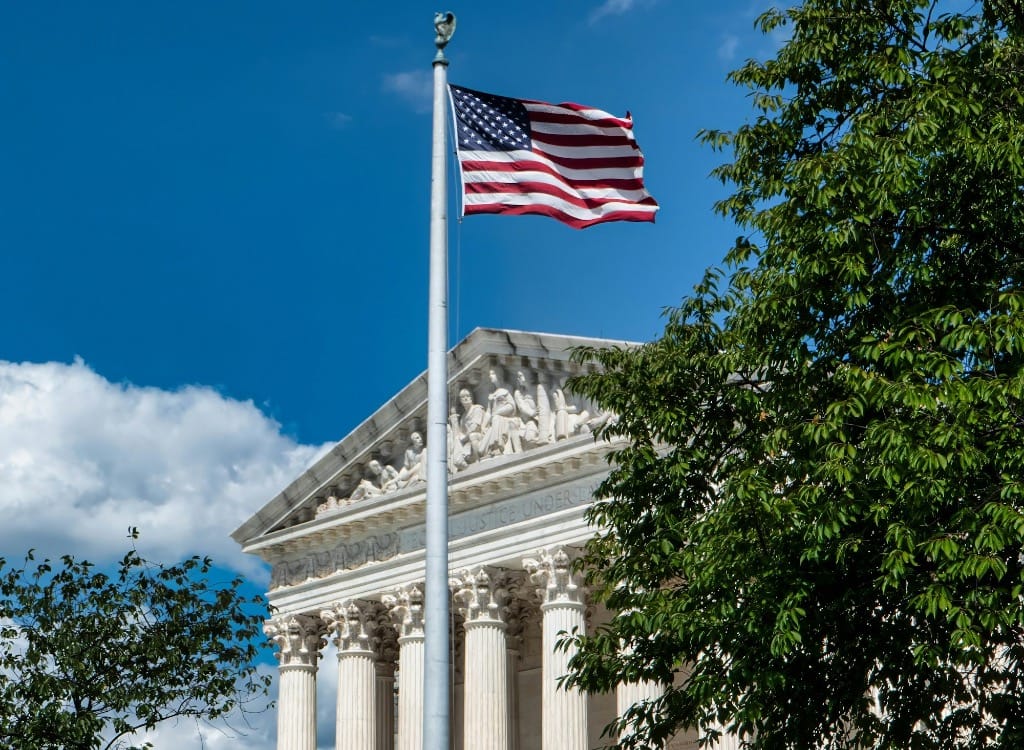Supreme Court Appears Reluctant to Rule Against USF
The $9 billion-per-year fund is being challenged as unconstitutional nearly 30 years after its creation.
Jake Neenan

WASHINGTON, March 26, 2025 – The Supreme Court appeared reluctant to find the Universal Service Fund’s funding mechanism unconstitutional at oral arguments Wednesday.
The three liberal justices, plus Amy Coney Barrett and Brett Kavanaugh expressed skepticism toward the arguments against the fund. Also, Justice Samuel Alito said he was concerned about the consequences of upending the fund.
Managed by the Federal Communications Commission, the roughly $9 billion-per-year subsidy supports broadband access for rural and low-income Americans. It’s been funded since its inception, under the Telecom Act of 1996, by fees on interstate voice revenue.
The task of calculating and collecting revenue to pay participants delegated to the Universal Service Administrative Company, a nonprofit the FCC set up for the task
The fund was repeatedly challenged by conservative nonprofit Consumers’ Research, which alleged the scheme illegally took taxing power away from the legislature. The Fifth Circuit Court of Appeals ruled in its favor in July 2024 after rehearing the case, and the FCC along with telecom industry groups and consumer advocates appealed.
Consumers’ Research is in part asking justices to expand the nondelegation doctrine, which holds that Congress can’t hand its legislative power to other entities, and make it harder to vest agencies with broad authority. The group argued the 1996 law standing up the fund didn’t put enough guardrails on the FCC’s management.
“I mean, honestly, I think that’s not a credible reading of the statute,” Justice Elena Kagan said. “There are some real standards in this program.”
Trent McCotter, an attorney representing Consumers’ Research, said Congress picking a maximum amount of money to be raised or capping the percentage of revenue assessed would be on stronger legal ground than telling the FCC to raise sufficient money to fund the program, which the law does.
“That seems pretty empty, right?” Barrett said. “It’s just kind of throwing a number out there for the sake of throwing a number. Why have they really set policy in a way that’s meaningfully different from the way they did in this statute?”
The government’s perspective
Sarah Harris, the acting solicitor general, argued that the Telecom Act did constrain the agency, and that USAC’s work was purely ministerial, with the FCC making policy decisions around which entities and what services are eligible for support and USAC simply carrying them out.
“The FCC can’t say ‘Wouldn’t it be nice to have a rainy day fund where there’s an additional $10 billion lying around?’” she said. “It has to be tied to the specific universal service programs that have been in existence and that Congress prescribed for the FCC to pursue.”
The liberal justices appeared receptive to the arguments both around the statute and USAC’s role. Justices Clarence Thomas and Neil Gorsuch pressed the government on whether the law meaningfully constrained the FCC’s ability to raise cash.









Member discussion